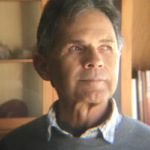
In years past, American companies that sell items such as cars, military weapons, food, gasoline, airplanes, baking supplies, and items for personal use found that using Native American words in their product names was good for business. Now, however, some of these companies are taking a second look at their choices. In the current age of cultural awareness, appropriating words from Native American languages is deemed “unseemly,” and in some cases just plain bad for the bottom line.
